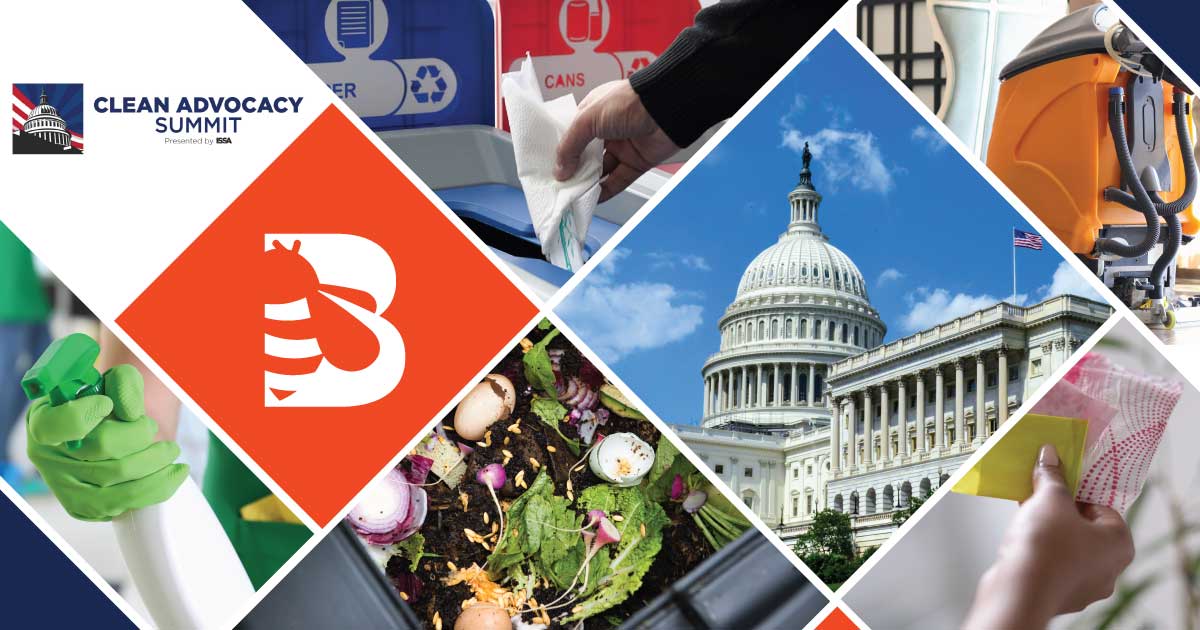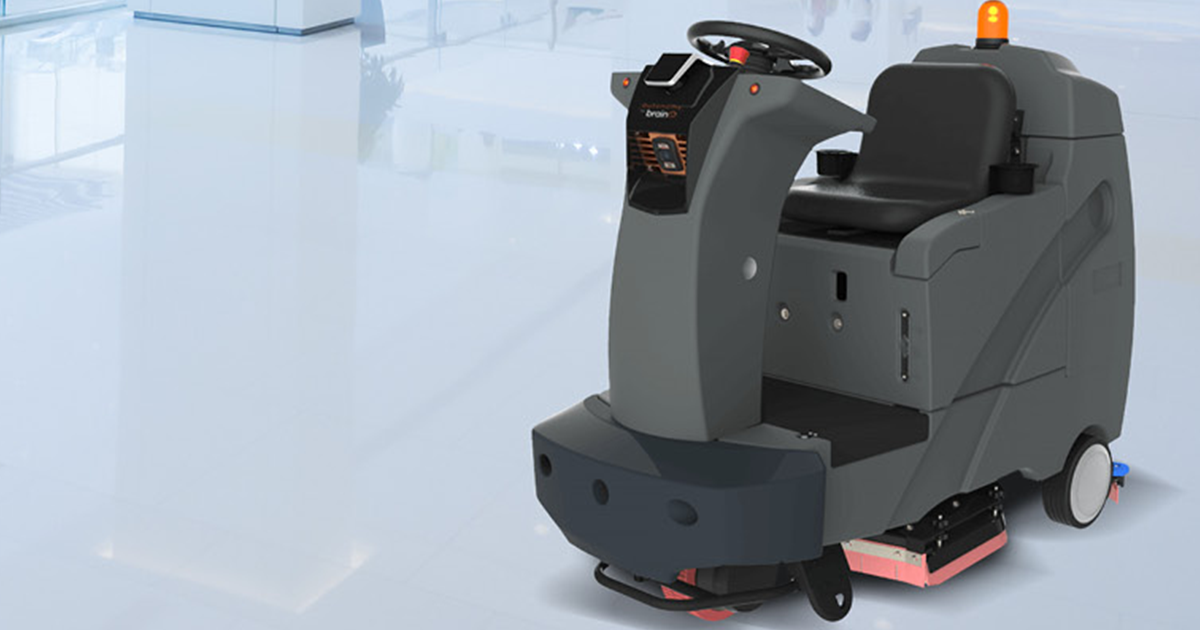4 min read
Hello, Facility Care Team. Meet Your New Best Friend: The Robotic Scrubber
How Man & Machine Work Together at this California-based Company

When laws or regulations change in the cleaning industry, there can be a widespread impact on the way facilities operate, making it more critical that you get SUPPLIES + SUPPORT from a trusted partner.
That’s why Donna Little turned to BradyPLUS, after California passed the Menstrual Equity for All Act1, requiring schools to stock bathrooms with free menstrual products. Little, who is the Storekeeper for the Antelope Valley Union High School District, is responsible for stocking facility care supplies that are purchased by custodians and others around the district.
“Low-income students don’t have access to feminine products. A lot of students are embarrassed. So, that’s a big problem,” said Little.
The new law requires that 50% of a school’s restrooms have access to menstrual care products. With 22 schools and up to 15 restrooms per site, Little knew she needed a very large quantity of products. 
“I needed help. When you just Google the product, you have a million choices, so my first choice was to go to {BradyPLUS}. They supply 90% of my custodial supplies. I have a great {BradyPLUS} representative who is always there to answer any questions I have, and she offers any support, whatever I need,” said Little.
Little needed to find products for more than 100 restrooms at a competitive price. She communicated her business objectives to BradyPLUS, and our team listened and responded.
Two weeks after her order, the products were ready to go, and well ahead of the new law taking effect.
“I’ve reached out to other vendors just to try to save costs where I can, and I have not found other vendors that were able to supply the quantities I need,” said Little. “{BradyPLUS} had the right machine, they had the right product, and it was all in stock. I have to routinely restock the napkins and the tampons, and I put in my order, and {BradyPLUS} always delivers,” said Little.
As part of California law, Little says state inspections are done at schools every year. If the district doesn’t have the required products, points are taken away that are tied to school funding. She credits the reliability of BradyPLUS for ensuring that the school always has the proper inventory.
In addition, Little says she can count on the BradyPLUS team’s expertise for consultation and training whenever needed.
“If training is needed, I’ll call on {BradyPLUS} in a heartbeat, and they’re always there. That’s a huge plus for me to make sure of the reliability, safety, and support that you need. What more could you ask for in a vendor?”
It’s not only California laws impacting the installation of menstrual care products that you need to learn about; similar legislation2 is popping up around the country, including in Illinois, New Jersey, Minnesota, and other states.
From menstrual care products to sustainability, there’s a broad range of new or changing laws that affect the cleaning industry. As a facility care manager, if you aren’t up to speed, it could have an impact on your bottom line in the form of fines or loss of funding.
In 2016, before the COVID-19 pandemic, California passed SB 13833, which gradually increases the percentage of waste diversion that municipalities and businesses must achieve through recycling programs to keep those materials out of landfills. By 2025, the entities affected by the law have to reduce organic waste disposal by 75%.
Keith Schneringer, Senior Director of Marketing – JanSan + Sustainability, BradyPLUS, says the pandemic delayed efforts to comply with SB 1383 for some municipalities and businesses that were consumed by addressing the public health threat of COVID-19.
“When SB 1383 first passed, local governments and businesses were thinking, ‘We have 10 years to get in compliance, and we’re already at 30% diversion’. However, now, they look at their progress, and they’re saying, ‘Oh my gosh, we’re only at 40% diversion, so we have to step it up.”
Schneringer says others have been more proactive in taking measures to comply with the law.
“It’s been heartening to see several municipalities that were forecasting their landfills were going to be full by 2025, and now they’re forecasting they’ll have space through 2040 because of their waste diversion efforts.”
No matter where you work as a facility care manager, chances are that new sustainability policies or laws are affecting your state or another state not far away. From Alaska and California to Illinois and Delaware, there is a long list of new legislation4 that is changing how municipalities and businesses operate when it comes to recycling requirements, product bans, and more.
“It affects our customers because they need to think about how they are going to collect that recyclable waste, how they are going to separate it from waste that goes into the landfill. You want to make sure the waste is clearly designated so that you have waste goes in this receptacle, recycling goes in this one, and organic waste or food scraps go in another. That will ensure the materials go to the right place, whether that’s the landfill, recycling center, or the composting facility.”
With all the new laws in the cleaning industry, we’ve put together a checklist for facility care managers with actional steps to ensure you stay up to speed and comply with the legislative changes:


“You may even find it makes sense for your facility care to come into compliance before the legislation even passes, so you can get your team familiar with the changes. Then, when the law passes you don’t have to be scrambling for solutions,” said Schneringer.


“There have been instances where a wonderful waste diversion policy is written by a municipality, it’s enacted with receptacles and great signage, it’s sorted the right way, and the problem doesn’t show up until the very end. That’s when a custodian is at the back dumpster, and there’s only one trash dumpster, so all the waste has to go into that dumpster, which means it won’t be diverted properly. That’s a training aspect and demonstrates the importance of understanding the whole process. There needs to be a way to collect and store the materials and keep them separate, based on whether they are going to a landfill, recycled, or composted,” said Schneringer.
By taking the steps above with new laws, you can potentially avoid fines, capture opportunities for tax incentives, and in some cases, save money from trash hauler fees by diverting some materials to recycling or organic collection services.
As new legislation emerges in the cleaning industry, we are committed to providing SUPPLIES + SUPPORT to help our customers be successful every day. That means we go above and beyond wherever it takes us, including our nation’s Capital, to deliver more as a trusted partner and an advocate for facility care teams across the country.
For the third year in a row, our BradyPLUS team joined the ISSA Clean Advocacy Summit5 in Washington, D.C., to support new laws in the cleaning industry that protect public health.
“Ideally, we're hoping to help shape some of the laws that are going to positively impact our customers and communities in the future. We want our collective voices heard, as we strive to find innovative solutions that keep facilities cleaner and more sustainable, people safer, and operations more productive,” said Schneringer.
During our team’s trip to DC, we supported new legislation in the cleaning industry in several areas, including:
Our team supports legislation in cities and states across the country that is like California’s Menstrual Equity for All Act to ensure that every student, no matter their financial means, has access to menstrual care products in their schools.
During the pandemic, federal funding was provided for schools and other entities to bolster cleaning efficacy in their facilities. Our team is looking at legislation that recognizes the continued importance of that type of funding to create healthy spaces and mitigate any future risks of pandemics.
In the agricultural industry, there are legislative provisions that enable undocumented workers to be employed for three months during harvest season. Our team is exploring similar legislation in the cleaning industry that would provide undocumented workers with temporary guest worker status so that our customers and other businesses facing labor challenges could find, hire, and retain workers to keep classrooms, offices, and public spaces clean.
“Our message is that cleaning is important. The legislation that we are supporting enhances the custodial staff's ability to perform essential duties in the home districts of each congress member. We strongly believe the changes that we are advocating will help protect the health of all their constituents,” said Schneringer.
If you want to ensure that your facility is operating at the highest level and complying with new policies and laws, contact us today to learn more about our comprehensive approach to providing SUPPLIES + SUPPORT. Our industry experts are ready to conduct a complete facility assessment and provide you with the insights and solutions you need to be successful.
1. California schools must stock bathrooms with free menstrual products under the law
2. ISSA's August Period Project Update - Impact Report
3. California's short-lived climate pollutant reduction strategy
4. Tracking notable recycling laws by state
5. 2024 ISSA Clean Advocacy Summit

4 min read
How Man & Machine Work Together at this California-based Company

9 min read
The effort to conserve our planet's natural resources has become a massive part of our lives, especially regarding facility management. There is an...

8 min read
Washing our hands properly is one of the best things we can do to help limit and prevent the spread of illness and help keep us healthy.